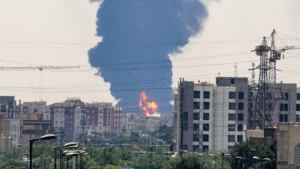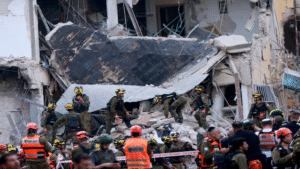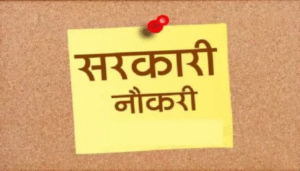Global Crises Deepen: Kyiv’s Rising Death Toll, India’s Iran Evacuation, and US Diplomatic Pullback from Israel
In an increasingly interconnected world, the reverberations of conflict echo far beyond their immediate epicenters. Recent headlines paint a stark picture of this global impact, highlighting the tragic human cost of ongoing hostilities and the urgent efforts undertaken by nations to safeguard their citizens. From the rising death toll in Kyiv due to relentless Russian attacks to India’s “Operation Sindhu” evacuating nationals from war-torn Iran, and the United States’ precautionary withdrawal of diplomats from Israel, these events underscore the precariousness of peace and the paramount importance of civilian protection in times of crisis.

Kyiv’s Enduring Anguish: The Rising Toll of War
The grim reality of the conflict in Ukraine continues to unfold with heartbreaking regularity. Latest reports from Kyiv reveal that more bodies have been discovered amidst the rubble of a nine-story apartment building, bringing the death toll from a recent devastating Russian missile attack to 28. This relentless assault on civilian infrastructure serves as a chilling reminder of the indiscriminate nature of modern warfare, where homes become battlegrounds and innocent lives are shattered. The ongoing search and rescue operations, the efforts of emergency workers sifting through debris, and the desperate wait of families for news of their loved ones, all paint a vivid, sorrowful portrait of a city under siege. The rising casualty figures are not mere statistics; they represent individual stories of loss, shattered futures, and enduring trauma that will scar the Ukrainian capital for years to come.
India’s Lifeline: “Operation Sindhu” in Iran
Concurrently, the escalating tensions in the Middle East, particularly the heightened conflict between Iran and Israel, have compelled nations to act swiftly for the safety of their expatriate communities. India’s launch of “Operation Sindhu” exemplifies this proactive approach. Recognizing the rapidly deteriorating security situation in Iran, the Indian government has initiated a robust evacuation effort, with the first phase successfully bringing 110 Indian students from northern Iran back to safety. This intricate operation involved their perilous journey by road to Yerevan, Armenia, under the watchful eye of Indian missions in both countries, followed by a special flight to New Delhi. Such strategic evacuations are a testament to a nation’s commitment to its citizens abroad, navigating complex diplomatic landscapes and challenging logistical hurdles to ensure their safe return from zones of active conflict.
US Diplomatic Maneuvers: Precautionary Measures in Israel
Meanwhile, the United States has also begun its own calculated withdrawal, starting with the evacuation of some diplomats from its embassy in Israel. This move, while not a full-scale citizen evacuation, signifies a heightened level of concern within the U.S. government regarding the potential for further escalation in the region. The decision to remove non-essential personnel underscores the inherent risks faced by diplomatic missions in volatile areas and highlights the pre-emptive measures taken to protect staff when a conflict threatens to spiral. It is a grim indicator of the seriousness with which world powers view the current geopolitical climate, where diplomatic presence must be balanced against the very real dangers posed by unfolding crises.
A Global Call for Peace
In conclusion, the intertwining narratives of rising casualties in Kyiv, India’s swift “Operation Sindhu,” and the US evacuation of diplomats from Israel are more than just isolated news items. They form a distressing global tapestry woven with threads of human suffering, national responsibility, and the ever-present threat of international instability. These events serve as a potent reminder of the far-reaching consequences of armed conflict and underscore the critical, often life-saving, role of humanitarian efforts and diplomatic interventions in protecting civilian lives caught in the crossfire. As the world watches these crises unfold, the urgency of de-escalation and the pursuit of lasting peace become ever more apparent.




















